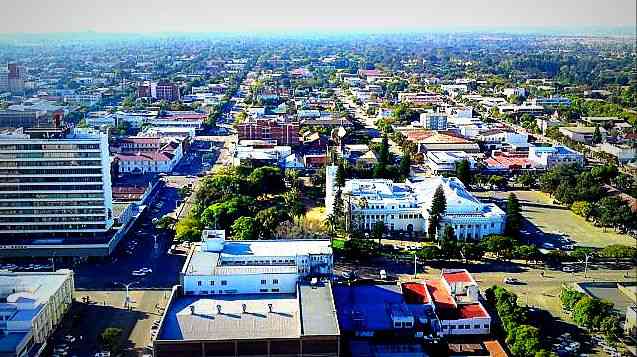
FORMER Speaker of Parliament, Lovemore Moyo, has urged the government to address the challenges behind the de-industrialisation of Bulawayo.
Moyo said it was alarming that Bulawayo, once viewed as the industrial hub of the country, had been turned into a consumer city of fake and cheap products.
“We should have a Matabeleland industrial development plan. Any country with a strong development plan has each area marked for its specific use,” Moyo told Southern Eye.
“How do you revive the clothing industry when you have opened up for the Chinese to bring their cheap products into the country?
“The city has been turned into a branch city where companies from outside open their branches which do not serve any purpose for the local people, but act as warehouses.”
He urged delegates who will converge for the upcoming Zimbabwe International Trade Fair to engage in meaningful dialogue that drives investment in the city.
Zimbabwe Congress of Trade Union Western Region chairperson Ambrose Sibindi said the fact that most of the big shops were partitioned into small shops is a sign that the manufacturing sector has collapsed.
“The government has been making false promises. There should be a budget earmarked for the revival of industries,” Sibindi said
- Cars up for grabs in batteries competition
- Revisiting Majaivana’s last show… ‘We made huge losses’
- Edutainment mix: The nexus of music and cultural identity
- ChiTown acting mayor blocks election
Keep Reading
“The influx of Chinese shops with their finished products shows that there is no light at the end of the tunnel.”
The municipality last week hosted the Bulawayo Development Conference, where mayor David Coltart lamented the de-industrialisation of the city.
“Our city faces deep challenges: de-industrialisation, job losses, water scarcity, aging infrastructure, and uneven economic opportunities,” Coltart said during the conference.
Scores of small and big companies in Bulawayo have downsized, relocated or closed shop altogether citing a number of reasons, throwing thousands into joblessness.
According to estimates, close to 30 000 workers may have lost their jobs since 2009 as companies shut down after failing to access private or public loans.
Governments’ US$40 million Distressed Industries and Marginalised Areas Fund company rescue package launched in 2011 aimed at providing cheap loans failed to save the situation as firms kept closing.









